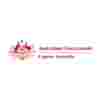Revealing the role of natural killer cells in cancer immunity
Co-funded with:
Cancer Australia

Cancer types:
Leukaemia
Project period:
–
Research institute:
Monash University
Award amount:
£200,193
Location:
Australia

Professor Rossjohn and his team are studying natural killer cells, a type of immune cell that can spot the cancer cells that T cells miss. He hopes uncovering the genetic differences between NK cells in different patients will help them learn how to use NK cells in immunotherapy.
Hope for the future
Most cancer immunotherapies, which harness the power of the immune system, focus on a type of immune cell called a T cell. However, a different type of cell, ‘natural killer cells’, or NK cells, are another important part of the immune response with potential as part of immunotherapy. Compared to T cells, we don’t yet understand as well what triggers NK cells to fight back against cancer.
Professor Rossjohn and his team are studying NK cells, specifically how they tell the difference between healthy cells and cancer cells. The researchers hope that uncovering the detail of this process will reveal important differences in the way NK cells affect cancer progression. It could also lead to ways to harness NK cells in immunotherapies that treat leukaemia.
Meet the scientist
When he was a child Jamie wanted to become a professional snooker player. Then at University he played Judo and dreamed of representing his country in the Commonwealth games. But in reality, he spent more time being thrown than doing the throwing. Now, he spends his time running and training for marathons.
The science
Immunotherapies harnessing T cells have been a major breakthrough and lifeline for many patients. However, this approach to treatment has limitations – the right markers must be present on the cancer cells for the T cells to recognise them, if not, they won’t spot the cancer and launch an immune response. Cancers that have relatively few mutations may not be different enough from healthy cells for the T cells to spot them, or markers the T cells need to do so may be missing.
That’s where NK cells come in – they are activated when those markers are missing, so they can catch the cells that T cells don’t spot. It has been hard for researchers to understand how to use NK cells because there is a lot of genetic diversity – both in terms of the markers on the cells, and the receptors the NK cells use to detect the markers.
Professor Rossjohn and his team will try to unpick this puzzle by studying the genetic makeup of the markers and receptors. This is important as it can affect clinical outcomes in patients. In fact, they hope to look at the link between the genetic differences in these features of NK cells and the clinical outcomes of patients with a range of conditions. This will help us better understand how NK cells could be used to attack leukaemia and other cancers.
This project is 50% co-funded with Cancer Australia.
Thank-you for your generous contribution to our cancer research project. Through your kind donation we are able to continue our vital work in advancing cancer research leading to the development of innovative treatments, and offering hope to those facing the challenges of cancer. Together we are making a meaningful impact in the fight against cancer.




